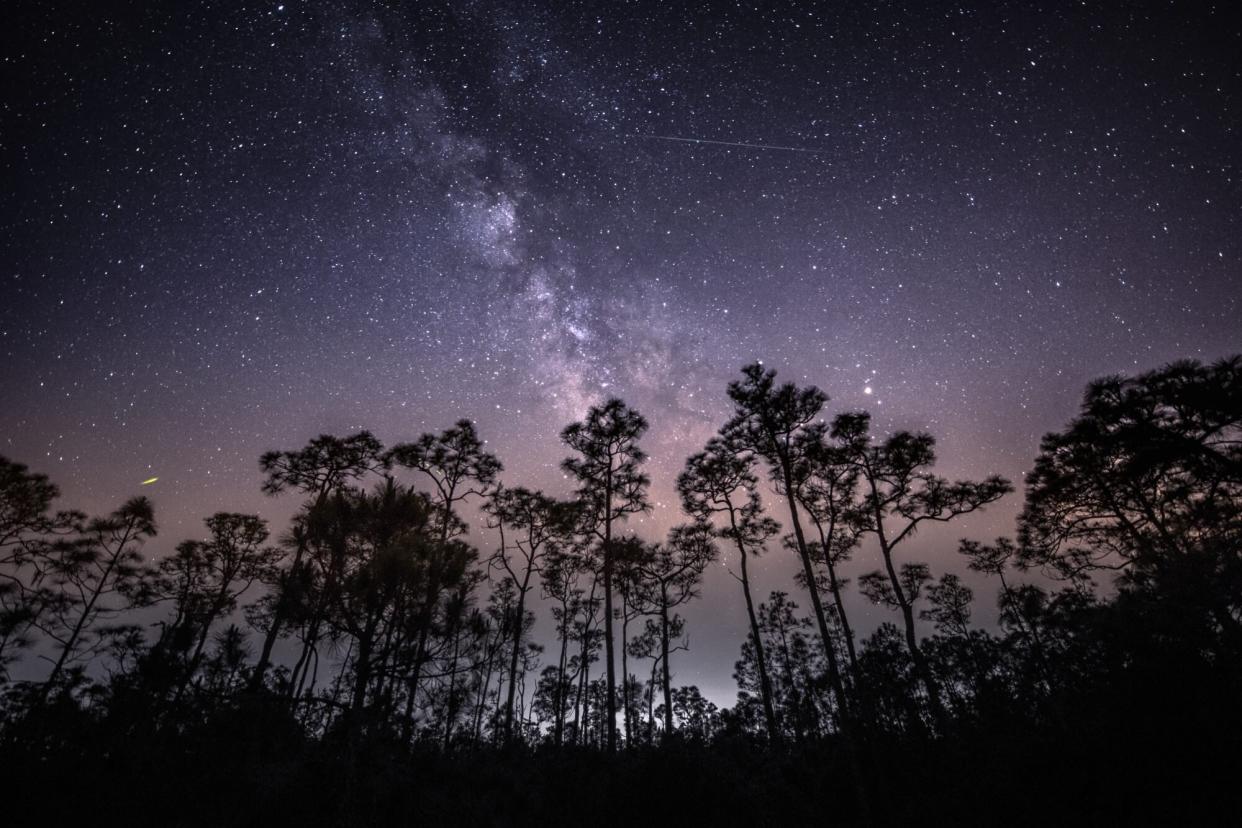11 Spectacular Celestial Events to See in 2023—No Telescope Required

Diana Robinson Photography / Getty
Mark your calendars! As you settle into new year, be sure to put a few upcoming celestial sights on your radar. From supermoons to meteor showers, you'll be able to see several night-sky phenomenons from your backyard in 2023—and thankfully, you won't need a telescope or other stargazing equipment to view them.
A myriad of meteor showers will appear in 2023; the first major showing, the Lyrid meteor shower, will peak April 22 and 23. You'll be able to see it from the northern and southern hemispheres when the moon is almost completely dark. Next, you'll view the Eta Aquariids in early May, the southern Delta Aquariids on the last few evenings in July, and the Perseids from mid-July through August (they peak on August 12).
Related: Scientists Grew Plants in Moon Soil Collected During the Apollo Missions: "We Were Amazed"
Come autumn, you'll observe a few more shooting star events. The Orionids will be the first to appear; they will peak between October 20 and 21. The Taurid meteor shower will roll in next, taking place from October through November. Finally, the Geminids will light up the night sky in mid-December, and will shoot over 100 meteors per hour (the most out of the other meteor showers this year!)
Lastly, be sure to bookmark 2023's supermoon schedule—there will be four of these lunar events this year. Supermoons are full moons that appear bigger and brighter than average; this occurs when they are as close to Earth as possible. These will appear during summer and early fall, on July 3, August 1, August 31, and September 29.
Major Celestial Events of 2023
April: Lyrid Meteor Shower
May: Eta Aquariid Meteor Shower
July: Delta Aquariid Meteor Shower and supermoon
August: Perseid Meteor Shower and two supermoons
September: Supermoon
October: Orionid Meteor Shower and Taurid Meteor Shower
December: Geminid Meteor Shower

